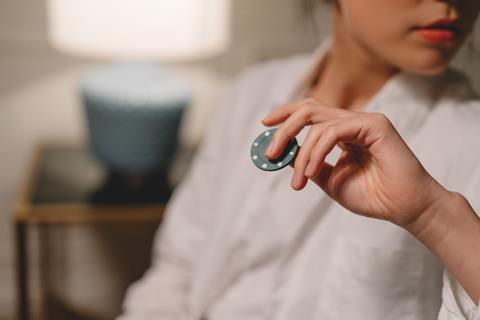Increasing numbers of women are gambling, and with the cost of living crisis, some are using it as a way to make money. Rachel Lampard from the Joint Public Issues Team spoke to Premier about how dangerous this is, and what the church can do to help.

The cost of living crisis is driving people to increasingly extreme measures to keep financially afloat. More people than ever are accessing food banks and being forced to choose between heating and eating. Some are turning to gambling as a way to make quick money. A Gamble Aware survey showed that one in four women who gamble are expecting to gamble more because of the cost of living crisis. This is a problem.
Speaking to Premier Christian Radio, Rachel Lampard from the Joint Public Issues Team said: "Seeing gambling as a way, not of finding fun or having entertainment, but actually a way of trying to get more money is very very dangerous. We know it can lead to people being dragged into debt. Gambling really isn’t a way of making money at all."
A study found that one in four women wouldn't talk to a family member if they were struggling with their gambling habits.
Historically gambling has been seen as a man's problem, with little support geared towards women. Rachel said: "I think the expectation is that women don’t gamble. We often see gambling as going into a casino or a betting shop which are quite often male environments. Where women often gamble is at home. They will gamble online and the kind of gambling they do is not very different from the free play games that many people will be playing on their phone or on their computer. They’ll be very innocent looking, social kind of games. And women will often end up being sucked into that quiet and private kind of gambling.
A study found that one in four women wouldn't talk to a family member if they were struggling with their gambling habits. The hidden nature of women's gambling could contribute to why they find it so hard to speak out and are reluctant to seek help. Rachel said: "There is help there and that shame should not be a barrier. I think a lot of women sometimes do feel a particular added layer of stigma because gambling takes money and time away from your family."
Shame around gambling is probably a sign that you need to reach out and speak to someone, explained the expert. She said: "There are people out there that you can go to; your GP or go online and search for Gamble Aware. They're a charity that provides treatment and advice for people who are struggling with harm related to gambling. Their figures show very clearly that the harm related to gambling isn’t just financial but can show itself in stress and mental health problems.
Shame around gambling is probably a sign that you need to reach out and speak to someone.
Rachel explianed that it's not just the women who suffer when they are sucked into the damaging cycle of gambling, but also their families and the wider community. But what can the church do to support those who are struggling? Rachel said: "Many churches will offer space to support groups, like Gamblers Anonymous groups which provide an environment where people can try and overcome the problems they’re facing. Churches often run support for people with debt problems as well and that's amazing.
"What we also need are changes at national level. One of the problems that gamblers often talk about is the amount of advertising they get hit with. They’re trying to control their gambling and they’ll just see adverts popping up on their computer all over the place. The government has been holding a review of gambling legislation that has dragged on for not just months but years now. We’re still waiting for the outcome of that. Churches for a long time have been engaging with government and regulators to say that we need more protections for people who are gambling and more responsibility and more expectations from gambling operators from people who are making money from gabling debt and gambling related harm and we just have to keep pushing."
If you would like to speak to someone about gambling call Premier Lifeline on 0300 111 0101. It's a national Christian confidential helpline open 9am to 5pm Monday to Friday (excluding public holidays).




































1 Reader's comment